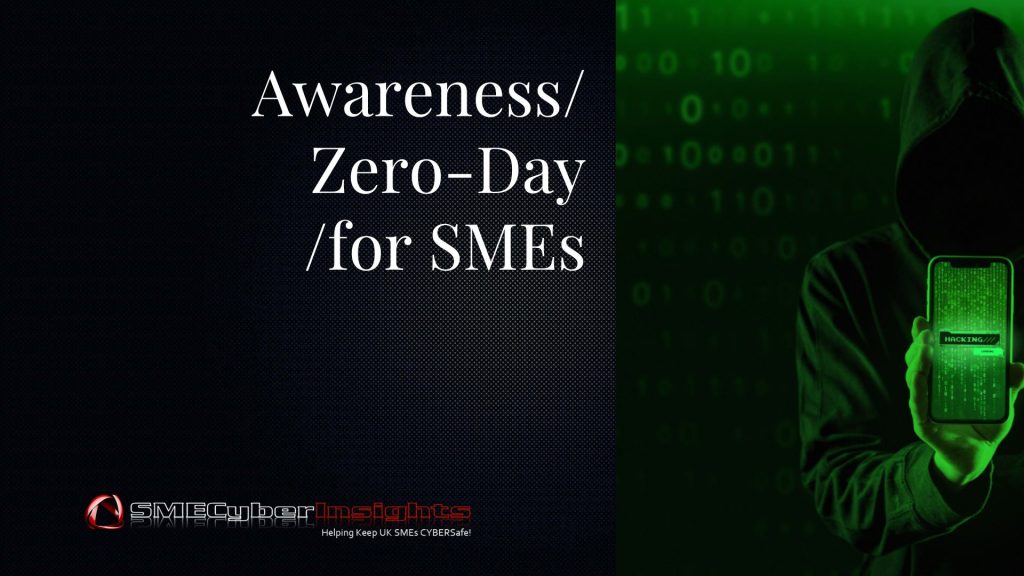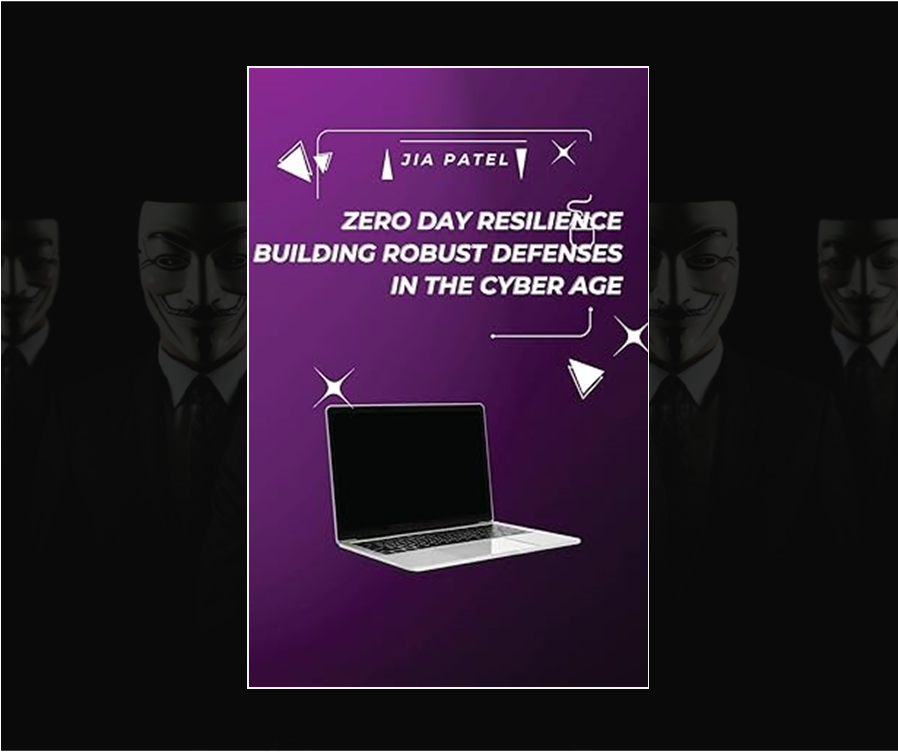ZERO-DAY: What is a Zero-Day Attack and is my SME at Risk
Cyber Learn – A zero-day attack is a cyberattack that exploits a software vulnerability that is unknown to the software vendor or security teams. Since the flaw is unidentified by the developer, there is “zero days” to fix it before the exploit is used, making these attacks highly dangerous. Hackers use these vulnerabilities to infiltrate systems, steal data, or launch further attacks without the victims knowing.
A Zero-Day Attacks usually occur in three stages:
1. Discovery of the vulnerability: Hackers or researchers identify a flaw in the software but do not report it to the vendor.
2. Development of exploit code: Hackers develop malicious software to exploit the flaw.
3. Execution of the attack: Once the exploit is developed, hackers use it to compromise targeted systems, often leading to data breaches, espionage, or service disruption.
Defending Against Zero-Day Attacks in the UK and Europe
Defending against zero-day attacks is challenging due to the unknown nature of the vulnerability, but organizations can implement several measures to reduce the risk:
Regular Software Patching:
Even though zero-day vulnerabilities are unknown, keeping software updated reduces the attack surface by fixing known vulnerabilities. Prompt patching can help mitigate attacks after vendors release fixes.
Advanced Threat Detection Systems:
Using AI-powered tools and intrusion detection systems can help identify unusual behaviour or traffic patterns that may indicate a zero-day exploit.
Threat Intelligence:
Subscribing to threat intelligence feeds and collaborating with cybersecurity communities (such as CERT-UK or ENISA in Europe) can provide early warnings about emerging threats.
Endpoint Protection:
Strong endpoint detection and response (EDR) tools help monitor all devices connected to the network, detecting suspicious activities and mitigating zero-day attacks.
Network Segmentation:
Implementing a segmented network ensures that if one part of your network is compromised, it doesn’t give attackers full access to all resources. This limits the impact of an attack.
Application Whitelisting:
Only allow approved programs to run in your system, preventing potentially harmful software from being executed unknowingly.
Incident Response Planning:
Having a robust incident response plan ensures that your business can quickly respond to zero-day attacks and mitigate damage.
Is My SME at Risk?
Small and medium-sized enterprises (SMEs) are increasingly targeted by cybercriminals, including zero-day attacks. Hackers often perceive SMEs as easier targets compared to larger corporations due to limited resources and less mature cybersecurity measures. Several factors can put an SME at risk:
Limited cybersecurity budgets:
SMEs often lack the funds to invest in advanced cybersecurity tools, leaving them more vulnerable to attacks.
Outdated software and systems:
SMEs might not have robust patch management procedures, increasing the risk of exploitation.
Lack of specialized expertise:
SMEs may lack in-house cybersecurity expertise to proactively defend against complex attacks like zero-day exploits.
Supply chain vulnerabilities:
SMEs often partner with larger companies, and attackers may target them as a gateway into more prominent organizations.

Impacts of a Zero-Day Attack on an SME
A zero-day attack can have serious consequences for SMEs, including:
Financial Loss:
Zero-day attacks often lead to significant financial losses from theft of sensitive information, ransomware demands, and costs associated with recovery efforts. For many SMEs, a cyberattack can threaten the business’s viability.
Reputation Damage:
Customers and partners may lose trust in the SME, especially if sensitive customer data is stolen or business operations are disrupted. Loss of trust can impact long-term growth and revenue.
Operational Downtime:
In many cases, the attack may lead to operational disruptions, halting business processes and reducing productivity.
Legal and Regulatory Consequences:
Failure to protect customer data could result in violations of data protection laws such as the General Data Protection Regulation (GDPR), leading to hefty fines and penalties.
Intellectual Property Theft:
For some SMEs, intellectual property (like patents or trade secrets) could be targeted, compromising competitiveness and innovation.
Zero-day attacks are an increasing threat to businesses, including SMEs, across the UK and Europe. While they are difficult to prevent, taking proactive steps like keeping systems updated, investing in modern threat detection tools, and having a solid incident response plan can help mitigate the risk. Given the potential for financial and reputational damage, SMEs should prioritize cybersecurity, viewing it as an essential business investment rather than an optional cost.

What is a VPN & Does my SME Need one? A VPN is a Virtual Private Network a method of securing your communications credentials. When it comes to Small and Medium-sized enterprises (SMEs), the choice of VPNs can significantly impact the security and efficiency of their operations.
The NordVPN service allows you to connect to 5600+ servers in 60+ countries. It secures your Internet data with military-grade encryption, ensures your web activity remains private and helps bypass geographic content restrictions online. Join NordVPN Today and Save up to 73% and Get 3 months Extra Free – Rude Not to …!
CYBER Insights – Helping keep Small Business CYBERSafe!
Launched in 2020 by Cybersecurity Journalist Iain Fraser and his team at IfOnlyCommunications, CYBERInsights was developed to be the go-to platform providing definitive, reliable & actionable Cybersecurity News, Intel & Awareness Training for SMEs throughout Europe (UK & EU) as they as they further embraced new Technologies and Business Practices.












